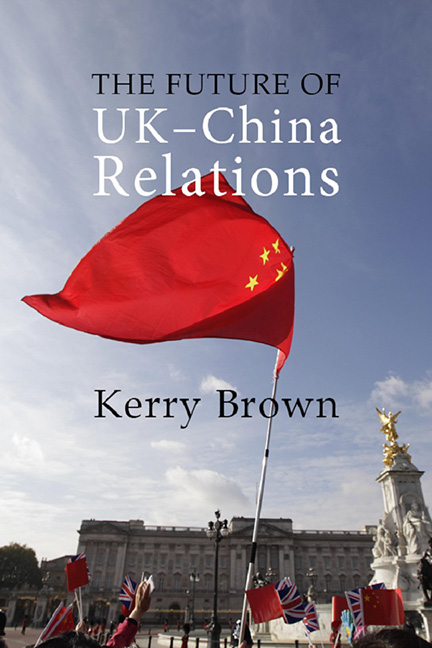Book contents
- Frontmatter
- Dedication
- Contents
- Dedication
- Preface
- Foreword by Tim Clissold
- Introduction
- 1 Tales from the golden age
- 2 What does China want? The case of the UK
- 3 Walk on by: what does Britain really want from China?
- 4 Who cares? The China circle in Britain
- 5 The good, the bad, and the Brexit: the UK and China outside the EU
- 6 The UK and China: scenarios for the coming decade
- Appendix: the UK’China balance sheet
- Further reading
- Notes
- Index
3 - Walk on by: what does Britain really want from China?
Published online by Cambridge University Press: 24 August 2023
- Frontmatter
- Dedication
- Contents
- Dedication
- Preface
- Foreword by Tim Clissold
- Introduction
- 1 Tales from the golden age
- 2 What does China want? The case of the UK
- 3 Walk on by: what does Britain really want from China?
- 4 Who cares? The China circle in Britain
- 5 The good, the bad, and the Brexit: the UK and China outside the EU
- 6 The UK and China: scenarios for the coming decade
- Appendix: the UK’China balance sheet
- Further reading
- Notes
- Index
Summary
In 2017, I had the privilege to travel around the world, speaking about China in places as far afield as Vancouver, Sao Paolo, Manila, Kuala Lumpa, Queenstown and Singapore. In Europe I went to Riga, Athens, Belgrade, Rome, Copenhagen, Brussels, Berlin and Dublin, and in China to Tianjin, Shanghai, Beijing and Hong Kong. Across 20 countries, over four continents, I had a unique insight at a particular moment into how China was starting to impact on the wider world.
In each of these places there was one thing in common: China mattered. The question was one of degree. In Manila, speaking with the local Ministry of Foreign Affairs, it was about how to balance the Philippines’ long, deep and extensive relationship with the United States with the need, despite having limited capacity, to gain more from the commercial relationship with their huge regional neighbour, only a few hundred kilometres across the South China Sea. For Singapore, at a major conference on the Belt and Road Initiative, it was a question of how best to continue being close to both Washington and Beijing – particularly in view of the increasing pressure on the city state by the country that claimed to be the ancestral origin of most of its population. In New Zealand, in the almost impossibly natural beauty of the Southern Islands, the anxiety was palpable at a meeting of business and government figures who were experiencing the attentions of the People’s Republic as never before. Malaysia was still dealing with the impact of the missing Malaysia Airlines Flight 370, on which many Chinese tourists were travelling, which had simply vanished in 2014. Feelings towards China were more ambiguous there.
If Asia is the frontline of hard thinking about China’s emerging power at a time when the United States has started to retreat, then Europe and North America were a fairly febrile second front. In Vancouver – often called a Chinese paradise because of the combination of excellent Chinese food, great weather, and a large émigré population – at a business conference where the usual discourse would have been warm platitudes and friendly words, the young, newly arrived Chinese ambassador berated the audience of Canadians for sticking by outmoded, old fashioned ideas about his country.
- Type
- Chapter
- Information
- The Future of UK-China RelationsThe Search for a New Model, pp. 49 - 66Publisher: Agenda PublishingPrint publication year: 2019

